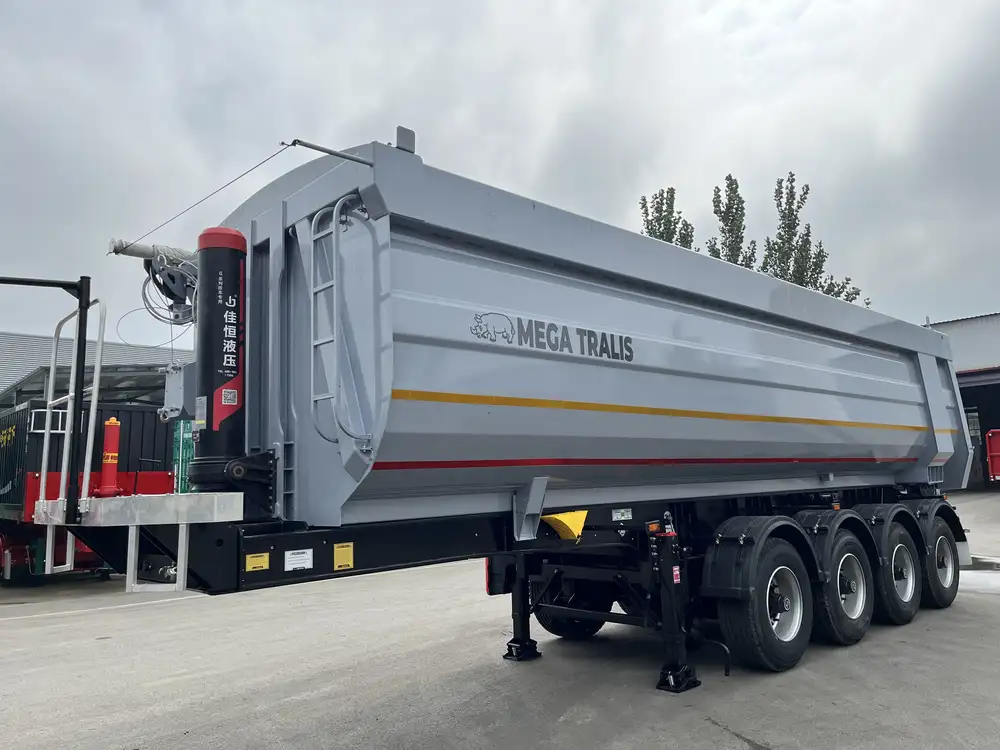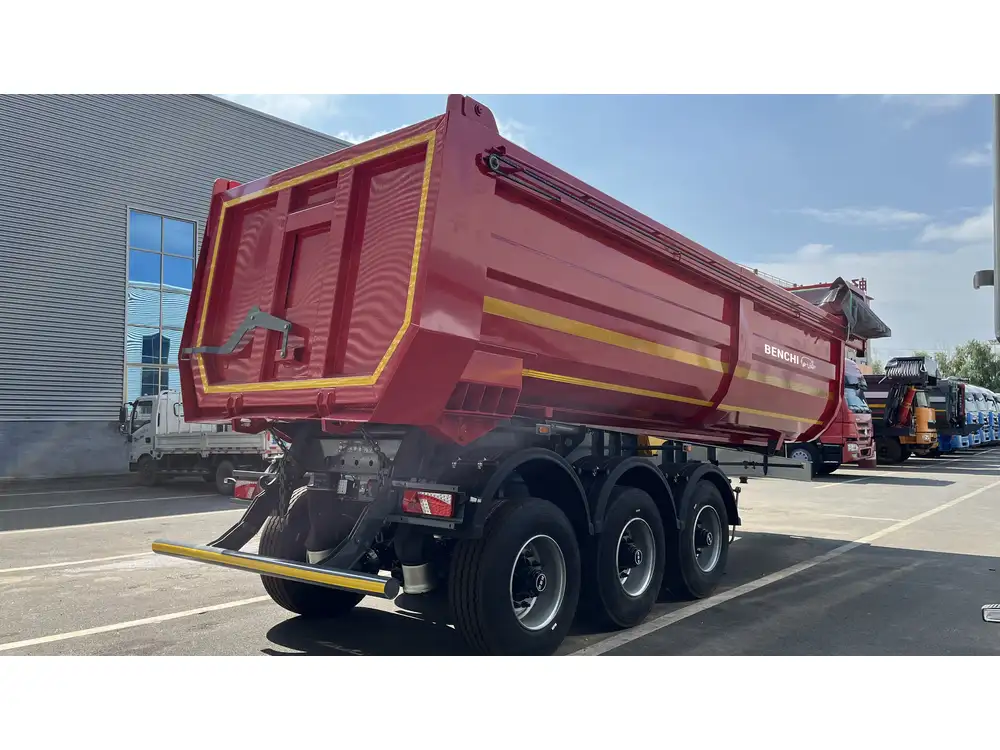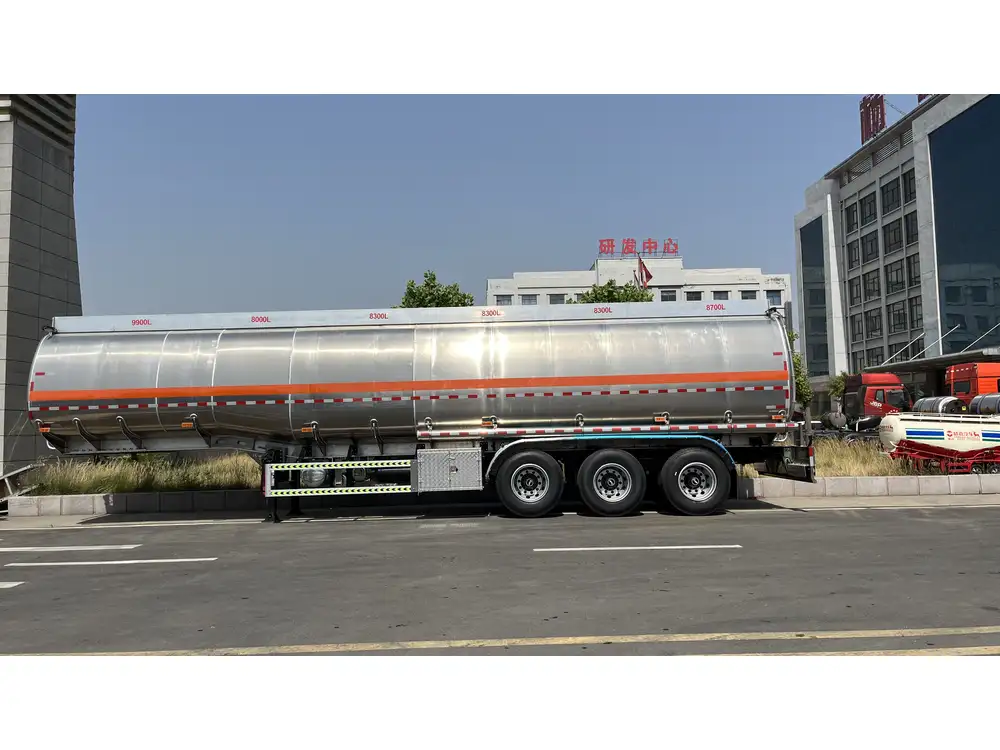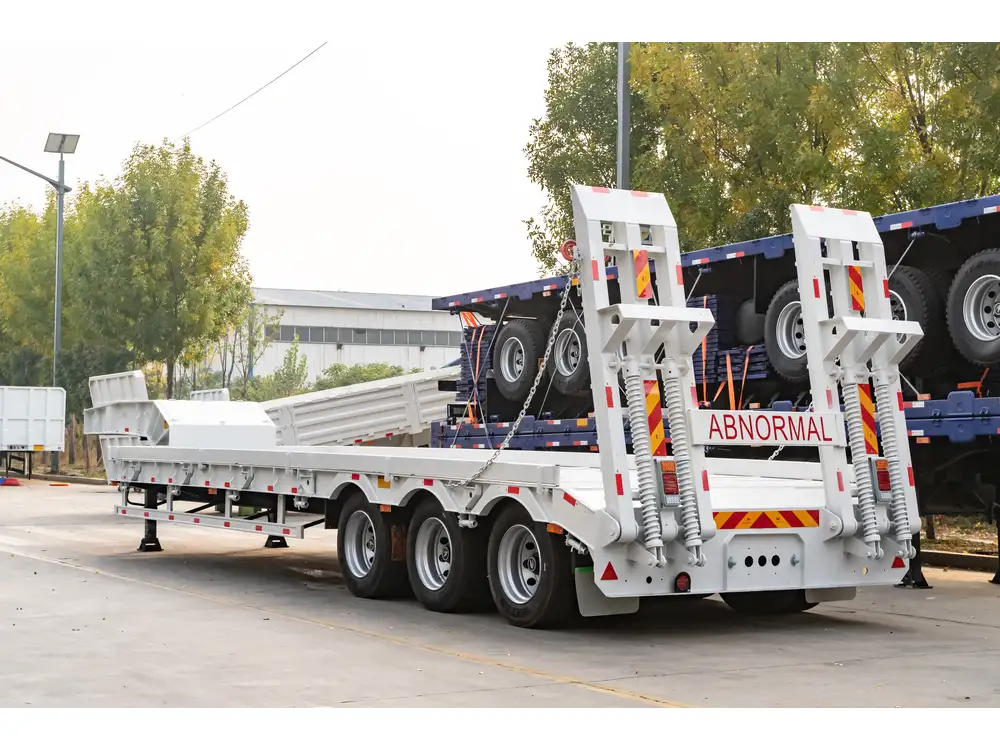In the realm of heavy-duty transportation, skeletal hydraulic trailers stand as a formidable choice for many businesses, providing unmatched adaptability and strength. At our company, we specialize in the manufacturing of semi-trailers, focusing particularly on skeletal hydraulic models. This article aims to provide an extensive overview of skeletal hydraulic trailers, encompassing their specifications, advantages, applications, and maintenance guidelines, ultimately catering to all your transportation needs.
Introduction to Skeletal Hydraulic Trailers
Skeletal hydraulic trailers are designed specifically for the efficient transport of containers and heavy cargo. Combining durability with advanced hydraulic mechanisms, these trailers facilitate seamless loading and unloading processes, making them an indispensable asset in various industries, including logistics, construction, and shipping.
What is a Skeletal Hydraulic Trailer?
A skeletal hydraulic trailer is a unique type of semi-trailer characterized by its minimalistic design, which is optimized for hauling containers, primarily ISO standard containers. The skeletal structure allows for reduced weight while maintaining the strength required to carry heavy loads. The hydraulic capabilities enable quick and efficient loading and unloading, enhancing productivity.

Key Features of Skeletal Hydraulic Trailers
| Feature | Description |
|---|---|
| Lightweight Design | Minimizes fuel consumption and increases payload capacity. |
| Hydraulic System | Facilitates swift operations for loading and unloading containers, improving overall efficiency. |
| Reinforced Structure | Ensures durability for transporting heavy and often oversized cargo, adhering to stringent safety standards. |
| Versatility | Capable of accommodating various container sizes, making them suitable for different transport needs. |
| Customizable Options | Tailored solutions available to meet specific user requirements, from lengths to payload capacities. |
Advantages of Using Skeletal Hydraulic Trailers
In today’s competitive logistics landscape, choosing the right trailer type can have a significant impact on operational efficiency and cost management. Below are the compelling advantages of skeletal hydraulic trailers:
1. Enhanced Load Capacity
The skeletal frame of these trailers is engineered to support substantial weight while retaining maneuverability. This unique configuration allows for increased payloads without compromising safety or stability.

2. Improved Fuel Efficiency
Due to their lightweight construction, skeletal hydraulic trailers contribute to reduced fuel consumption. Transport companies benefit from lower operational costs, which can lead to increased profit margins.
3. Rapid Loading and Unloading
The integrated hydraulic systems facilitate effortless loading and unloading, significantly decreasing operation times at loading docks. The quick turnaround times contribute positively to logistics schedules.
4. Adaptability to Various Cargo
Whether you are transporting shipping containers, construction materials, or oversized machinery, skeletal hydraulic trailers can adapt to a multitude of transportation needs. Their versatility is unmatched in the industry.

5. Low Maintenance
Constructed with durable materials, these trailers require minimal maintenance. Their reliable performance over time reduces downtime, allowing for more productivity on the road.
Applications of Skeletal Hydraulic Trailers
The applications for skeletal hydraulic trailers are diverse. Below are some of the key industries and uses:
1. Container Transport
As the primary function of skeletal hydraulic trailers, transporting ISO containers is a cornerstone of the shipping and logistics industry. They are designed to securely hold containers during transit, ensuring safe delivery.

2. Construction Industry
In construction, these trailers play a vital role in transporting heavy machinery and supplies. Their robust design and adaptability make them perfect for delivering construction materials to various job sites.
3. Moving Oversized Loads
For transporting unconventional loads that don’t fit standard dimensions, skeletal hydraulic trailers can be modified to carry oversized items, ensuring compliance with regulatory guidelines.
4. Agricultural Application
In agriculture, skeletal hydraulic trailers are effective for moving large quantities of produce, equipment, or supplies. Their customizability allows them to handle specific farming needs.

5. Intermodal Transport
These trailers are ideal for intermodal transport systems, which require quick transitions between different modes of transportation. Skeletal hydraulic trailers enhance logistical efficiency thanks to their lightweight design and ease of operation.
Comparing Skeletal Trailers to Other Types of Trailers
Understanding the unique advantages of skeletal hydraulic trailers becomes clear when comparing them to other trailer types. Below is a comparative analysis:
| Trailer Type | Capacity | Weight | Loading/Unloading Efficiency | Versatility |
|---|---|---|---|---|
| Skeletal Hydraulic Trailer | High | Low | Excellent | Very High |
| Flatbed Trailer | Moderate | Moderate | Moderate | High |
| Curtain Side Trailer | Moderate | Moderate | Good | Moderate |
| Box Trailer | Moderate to High | Higher | Moderate | Moderate |
Analysis of Use Cases
- Skeletal Trailers are unmatched in container transport due to their lightweight and adaptable structure.
- Flatbed Trailers are excellent for transporting wide loads but lack the versatility in container applications.
- Curtain Side Trailers provide protection for loads but do not offer the same efficiency in loading/unloading as skeletal trailers.
- Box Trailers offer enclosed protection but can be cumbersome in terms of weight and loading efficiency.

Maintenance Guidelines for Skeletal Hydraulic Trailers
While skeletal hydraulic trailers require minimal maintenance, regular checks are essential for longevity and safety. Here are vital maintenance tips to keep in mind:
1. Inspect Hydraulic Systems Regularly
Conduct routine inspections of the hydraulic systems to ensure that there are no leaks or malfunctions. Regular maintenance enables the hydraulic components to retain their efficiency, reducing breakdown risks.
2. Check Tire Conditions
Monitor tire health closely, as they bear the weight of the trailer during transit. Regular tire pressure checks and tread assessments will prevent blowouts and related accidents.

3. Lubricate Joints
Ensure all moving parts, especially at pivot points, are adequately lubricated. This practice minimizes wear and tear, enhancing the lifespan of the trailer.
4. Perform Structural Checks
Periodically examine the skeletal frame for any signs of damage, wear, or corrosion. Early detection of issues can prevent significant repairs down the line.
5. Adhere to Weight Limits
Exceeding the specified weight limit can lead to structural damage and safety hazards. Always monitor loads and adhere to recommended weight restrictions.

FAQ Section: Addressing Common Questions
1. What is the maximum load capacity of a skeletal hydraulic trailer?
The load capacity can range significantly, with many models supporting between 30,000 to 40,000 kg, depending on the specific design and construction.
2. Can skeletal hydraulic trailers transport non-containerized loads?
Yes, although primarily designed for container transport, these trailers can be adapted to carry various types of cargo, including oversized machinery.

3. How does the hydraulic system impact loading times?
The hydraulic system allows for portable lifting capabilities, which drastically reduces loading times—often by 20-50% compared to traditional loading methods.
4. What custom features are available for specialized needs?
Many manufacturers offer custom features such as adjustable frame lengths, reinforced structures for heavy-duty loads, and specialized tariffs for specific cargo types.
5. Are there specific regulations governing the use of skeletal hydraulic trailers?
Yes, regulations can vary depending on the country or region, usually concerning load weights and safety features. It’s crucial to consult local regulations and ensure compliance.

Conclusion
Skeletal hydraulic trailers represent a significant advancement in the field of transportation, providing remarkable advantages in terms of weight efficiency, versatility, and rapid operation. For businesses aiming to optimize their logistics and enhance operational productivity, investing in skeletal hydraulic trailers is a strategic move worthy of consideration. By keeping up with proper maintenance practices and understanding their applications, companies can maximize the value and longevity of these innovative trailers. Whether used in shipping, construction, or intermodal transport, skeletal hydraulic trailers offer a reliable solution tailored to modern transportation needs.
Explore our diverse range of skeletal hydraulic trailers today to find the perfect match for your business requirements, ensuring you stay ahead in an increasingly competitive market.



